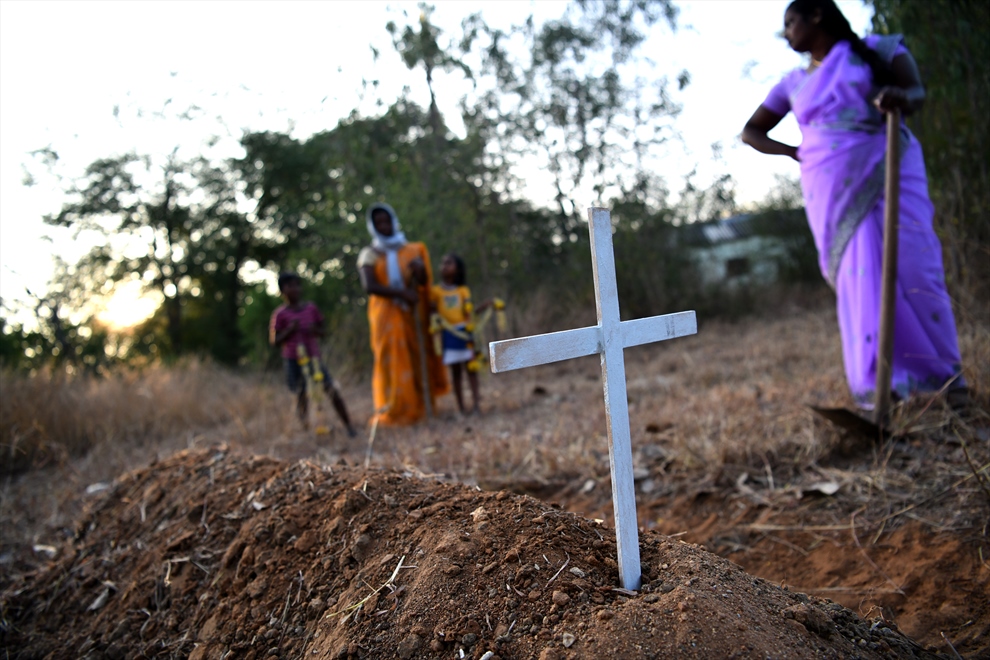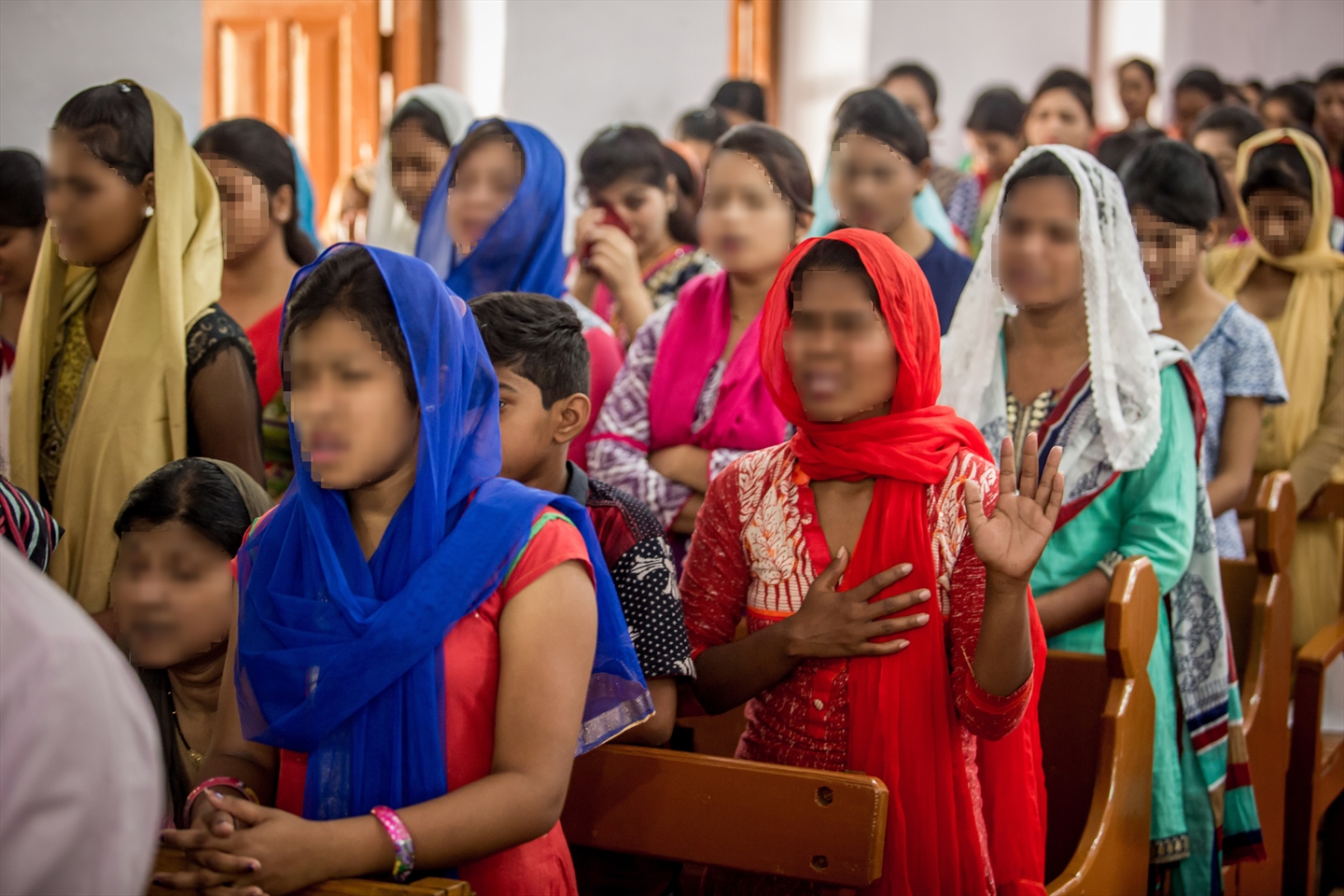The situation of Adivasis in India is increasingly dire, as they face a variety of forms of discrimination as a highly visible minority. Developers are encroaching upon their once economically neglected lands; especially those looking to mine newly discovered mineral deposits. Attempts to resist have often been met with violence, and many indigenous groups have joined so called “Naxalite” militias and groups which identify with Maoism and promote violent revolution. The Indian state has abetted and driven the process of encroachment on Adivasi land, often employing their security services against peaceful as well as violent protest.
The Adivasi are the indigenous inhabitants of India, and represent a diverse range of tribes and cultures, and in the 2011 census were found to represent 8.6 per cent of India’s population: more than 104 million people. Many live in very ancient pre-urban communities, often concentrated in the mountains and forests of India and have visibly different ways of life from the ethnic majority. Many Adivasi follow indigenous religious practices, and do not identify as Hindu.
The struggle for indigenous rights has involved Christians and Christian clergy, such as Father Stan Swamy, who was arrested for his activism on behalf of the Adivasi in Jharkhand, and whose life is now at risk as a result.
The recent report Destructive Lies, from Open Doors and researchers at the LSE, details a new wave of persecution against Christians and other religious minorities in India, and shows a particular spike in incidents in rural areas and against ethnic and caste minority groups like Dalits and the Adivasi.
The Adivasi are uniquely vulnerable to religious persecution because they are already disadvantaged on the basis of caste and race. As the report notes: “Cutting across religions, the groups who are most affected by discrimination and violence have tended to be Muslims and Christians from scheduled castes and tribes, most of whom self-identify as Dalits and Adivasis. For centuries, these communities have struggled against systemic discrimination and structural as well as material violence by dominant castes. Religious identity and indigeneity can be seen as further axes around which violence is targeted at them.”
The true numbers involved may also be much higher than appear in official statistics, “Today, according to the 2011 Census, although Christians officially number around 2.3 per cent of India’s population and Muslims 13.4 per cent, the real numbers who hold Christian and Muslim faith in India may be somewhat higher. This can be surmised based on a range of evidence and for a variety of reasons. Prime among these reasons is that Dalit and Adivasi Christians and Muslims have been placed in a position whereby they are not eligible to receive any state benefits to which they might have been formerly entitled on the basis of caste and indigeneity. Another major reason is the atmosphere of intimidation that evidently follows any proclamation of affiliation to a ‘minority’ religion when surrounded by Hindutva religious majoritarianism.”

Gagan’s Story
Gagan is an Adivasi Christian, who was beaten and assaulted by the Hindutva mob for attending church and praying with his family at home. Gagan would host prayer meetings and Sunday services at home in his village in the Malkangiri district. He had converted to Christianity after what he saw to be a miraculous recovery from a serious illness in 2016.
In January 2021, when his village noticed Gagan attending church with his family every Sunday, a vigilante Hindutva mob made up of around 200-250 people across three different villages came to his house and attacked him and his family while they were at prayer. His mother and 10-year-old sister were brutally beaten.
After the attack, the group used intimidation tactics to try and oust Gagan and his family, with Gagan himself having stated: “The attackers said if you stay in the village, we will kill you. Because they were so many in number, they boldly threatened, ‘we will cut you into pieces and throw you into the river’. Since January 2021, they have been threatening me to get me to leave the village. They have cut off our access to the ration shop and to water. I have land here. I cannot go anywhere else to work.”
Actual violence combined with a background of threats and harassment effectively impedes Christian worship and practice, and isolates the victims. When the LSE researchers for the Open Doors report met Gagan, he had stopped organising the church services at his house because the local pastor had stopped his visits in fear for his life. Gagan has also been forced to pay a fine of 25,000 rupees for following Christianity, and so has his Hindu brother whenever he wants to meet him. Gagan explained: “They are continuing to taunt us on a regular basis with death threats and by restricting our freedom to move freely in our village”.
Nevertheless, in the face of the violence, Gagan is standing firm: “This is my land. If we all come together, we can refute these illegal and discriminatory practices. The Rashtriya Swayamsevak Sangh (RSS) is targeting the most vulnerable groups first and then coming into places like this town. They will employ different strategies for different groups.”
So far the media and the government have taken no action to address the injustices against Gagan and his family. Gagan said: “We have tried to call the media, organise press conferences but they don’t respond. They are all bought over. Everyone the police, media and the local government is hand in glove with each other. If anything, the media will go against us, we will get killed if we go to them.”
Sunita’s Story
Sunita is an Adivasi Christian woman from a village in the Madhya Pradesh’s Barwani district, who gave birth to a still-born baby after a Hindutva mob violently kicked her in the stomach.
A group of Adivasi Christians had been organising a new year’s party on 31 December, 2020, when a 25-30 strong mob of Hindutva RSS men arrived, under the pretext that they were there to convert them to Hinduism. They burst into the home, harassed and abused the seven-to-eight women inside, and kicked Sunita, who was eight months pregnant at the time, in the stomach. She was rushed to hospital and suffered the devastating trauma of a stillbirth.
Sunita’s aunt, who was present at the time of the incident, said: “The mob of 25-30 men arrived in cars and on motorbikes. There were about seven to eight of us in the house at that time, including four to five girls. They held my husband by his collar and started beating him violently. In the middle of this ruckus, Sunita was knocked down by one of them and they kicked her as well. They threatened us to not tell anyone about this otherwise they would return and kill us.”
In the aftermath of the attack the lack of support from government officials and state actors further aggravated the situation. When Sunita’s family filed for a complaint, the police refused and dismissed it, later denying that the family had made the report. Instead, the police began checking the bank account details of the family to find out if they were being funded from foreign sources to convert to Christianity – a claim which the RSS brought forth against them. Sunita’s uncle said: “It feels like they don’t need us (Christian Adivasis) in this society anymore.”
Political and media support is equally sparse for the family. When asked for help, the local Legislative Assembly Member (MLA) refused by stating: “Both you and the Hindus vote for me. Moreover, the villagers are saying that “this incident didn't happen”. You all are lying.” Despite reporters being sent to witness some protests by grassroots human rights organisations in support of Sunita, nothing was reported in the papers or on local TV channels.
In spite of the actions of Hindu extremists and the indifference of the authorities, Sunita’s family determined to seek “public recognition of the violence they endured because they are Christian”. Regarding the general outlook of the Indian government on Christian Adivasis, Sunita’s uncle concluded: “There is no value for Adivasi life, they treat us like animals and put us to fight each other.”



 Loading ...
Loading ...